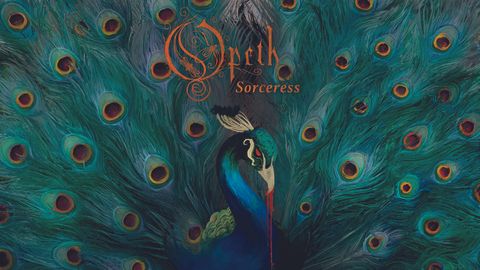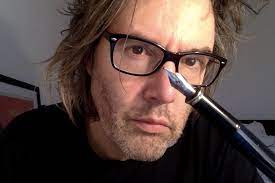“Love”, states Mikael Åkerfeldt, “can be like a disease or a spell”. It’s as unlikely a starting point as any for Opeth’s increasingly eclectic albums, but if there’s one thing binding this latest record together it’s that: the negative aspects of love, the bitterness, the lies, the betrayal.
It’s no secret that the singer’s been through the emotional mill these last few years and that’s reflected here, though the notions are allegorical, the heartbreak alluded to. Happily, Åkerfeldt is yet to record a collection of lovelorn ballads – he’s better than that – but it wouldn’t be wrong to describe a song like the sparse and acoustic Sorceress 2 as some kind of lament. It’s not typical of the album, though. In fact, not one song sits that easily next to another; as well as tackling the vagaries of love, Åkerfeldt was determined to create an album unmatched in its diversity: “The only thing I was thinking about with this record was to write that songs didn’t musically connect.” That said, it’s easy to revel in the album’s eclecticism as it flows from sparse, acoustic, almost folky musings to head-ringing heavy metal.
Written at their rehearsal space and then recorded in just 12 days at Rockfield Studios – an idyllic residential space in the wilds of Wales once favoured by bands like Rush – Sorceress is neither for the faint-hearted nor those waiting for the band to remake Blackwater Park, even if this album shares some of its lyrical motifs. This is the band at their most expansive and inventive. “My music taste got a little wider,” says Åkerfeldt. “I started listening to jazz. I bought a lot of Coltrane records. I guess Dave Brubeck fits in there, too. So, that’s the only new influx of musical inspiration for me. Other than that, I’ve been buying the same type of records I always have. Prog, symphonic rock, singer/songwriter, metal, hard rock…”
That said, it’s hard to find the jazz in Sorceress, though the familiar tropes of prog, symphonic and hard rock all meld beautifully throughout the record’s grooves. Meanwhile, the string arrangements, courtesy of Will Malone, who cut his teeth working on music for Black Sabbath before working with The Verve and Depeche Mode, brings a lustrous shimmer to Åkerfeldt’s grand designs. Strange Brew sounds like a nod to Cream (and not just in its title), with its thundering, Zeppelin-like roar and heavy blues vibe. Will O The Wisp is pastoral and lilting and sounds like Jethro Tull made over for the 21st century. The Seventh Sojourn is a languid wash of eastern rhythms and tabla drums leading into a sublime harmony vocal that elevates the song ever upward. Era, conversely, drifts in on a plaintive piano refrain before the heavy thrum of a Hammond organ tips the song over into a driving, insistent and irresistible rage. Chrysalis, too, is finely tuned hard rock with an abrasive twist and sounds like it might have come roaring out of the 70s. The frontman has been as good as his word; it feels as if nothing should fit and yet everything works. Opeth’s unceasing creativity marches ever onwards. For Mikael Åkerfeldt there’s no turning back.
MIKAEL ÅKERFELDT (VOCALS/GUITAR)
IS IT FAIR TO SAY THERE ARE A FEW NODS TO OLD-SCHOOL METAL ON THIS ALBUM?
“Oh, definitely. It’s not completely obvious, but there are definitely some traditional heavy rock riffs and even a blues rock riff . Era is like some kind of 80s heavy metal song, like Europe. It still sounds like Opeth, I think, but it’s very straightforward and fast. It’s a hard one to play!”
WHY ‘SORCERESS’?
“I didn’t have any titles until a week before we were due to deliver everything. I was singing the word ‘sorceress’, and there’s a Swedish band called Sorcerer, and I thought it was cool. A lot of the songs deal with the negative side of love and the title just fit with those topics. Love can be a burden or like a spell, as it has been for me over the years.”


